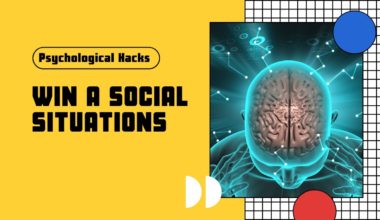Addiction can be defined as ‘a condition in which a person engages in the use of a substance or in a behavior for which the rewarding effects provide a compelling incentive to repeatedly pursue the behavior despite detrimental consequences.
Scientific research has shown that these substances and behaviors have a neurobiological feature in common. They both activate the brain pathways of reward and reinforcement, and many of them involve the pleasure neurotransmitter, dopamine.
Addiction can be to any certain substance or behavior, including:
- Alcohol
- Drugs
- Sex
- Pornography
- Gambling
- Social media
Table of Contents
Signs and Symptoms of Addiction:
Signs and symptoms of addiction can be categorized as follows:
Psychological symptoms:
- Not being able to stop: In most cases of drug addiction, the affected person does try to stop using the drug, but is unsuccessful in doing so. Moreover, substances such as heroin are chemically addictive and may cause withdrawal symptoms when a person stops using it.
- Substance abuse continues despite health issues: Many times, people continue suing and abusing drugs despite having developed health problems because of it. For example, a smoker may continue smoking even though he/she has developed lung disease. Such people may or may not be aware of the effects the substance has on health.
- An addicted person feels that they need to constantly take the drug or engage in that behavior to deal with problems in their everyday lives.
- Addiction may cause the person to become obsessed with a substance. He/she would want to spend more time and energy getting hold of that substance and in finding out new ways to use it.
- An addict may take extra risks to obtain the substance or engage in the behavior. For example, a person with drug addiction may steal to obtain illegal drugs. Moreover, a person under the influence of alcohol or drugs may engage in extremely risky behavior such as violence or dangerous and speedy driving.
- Constant substance abuse causes people to take increasingly larger amounts of the substance to achieve the desirable effects and to feel good.
Social symptoms:
Addiction can affect the way in which a person socializes with family and friends, such as:
- People with addiction tend to become secretive and prefer solitude. For example, a drug addict wanting to use the drug alone and in secret.
- Addicts can go great lengths to maintain their addictions, and can even sacrifice their home budgets for it. A drug addict may do so to maintain a good supply of the substance, and a gambler may do so to have money available to gambling.
- A lot of people with addiction may not be aware of their problems. They may refuse to seek treatment for it and believe they can quit anytime.
- Addicts tend to get into legal trouble for often. In the case of drug addiction, the substance can impair a person’s judgment and make him violent, posing a threat to the public. A person may also break the law to obtain a drug or partake in illegal activity.
- Drug addicts and gamblers can often drag themselves and their families into financial difficulties. This could be due to the fact that they’re spending a large amount of money on their addiction. Moreover, addiction could also be decreasing their work productivity.
- Sex addicts tend to jump quickly from one relationship to another, and may not be able to sustain a healthy relationship.
Physical symptoms:
- Drug addiction can cause withdrawal symptoms when levels of the addicted substance drop low in the body. Such symptoms include cravings, constipation, diarrhea, trembling, seizures, sweats, and uncharacteristic behavior, including violence.
- Some substances can cause changes in a person’s appetite. For example, marijuana consumption might increase appetite while cocaine may reduce it.
- Smoking tobacco, crack and other substances can cause incurable respiratory illnesses such as lung cancers. Injecting drugs can also cause limb damage and problems with veins and arteries. Sometimes, it can also lead to infection and loss of the limb.
- Constant consumption of alcohol in excess can cause chronic liver problems.
- Insomnia is a common symptom of withdrawal from drug and alcohol abuse. Moreover, habits such as regularly attending late-night parties to use that substance may also disrupt the sleep cycle.
- An addicted person may begin to appear more disheveled and tired. Moreover, the person starts to prioritize using the substance or engaging in the addictive behavior over essential activities such as washing clothes and taking care of personal hygiene.
- When a person continuously uses addictive substances for long periods of time, his body may become tolerant to that substance. That is, the person experiences reduced effects of the substance and feel the need to take more to achieve the same effect.
A person with an addiction might experience a few of these symptoms or many of them. Signs and symptoms can greatly vary among addicts.
Effects of Addiction:
Addiction, including that to alcohol and drugs, can have negative impacts of various areas of a person’s life.
Physical effects include:
- Organ damage
- Hormone imbalance
- Cancer (caused by nicotine or steroid use)
- Prenatal and fertility issues
- Gastrointestinal disease
- HIV/AIDS
Neurological and emotional effects can include the following mental health conditions:
- Depression
- Anxiety
- Memory loss
- Aggression
- Mood swings
- Paranoia
- Psychosis
Addiction can also cause certain legal consequences such as:
- Large fines
- Extensive jail sentences
- Probation
- Arrest records which can also cause problems in finding a job
- Driver’s license suspension and transportation difficulty
- Strict community service requirements
- Restrictions on living in certain communities
Addiction can also negatively affect a person’s social life. Some of these effects include:
- Job loss
- Strained relationships with family and friends
- Aggression toward friends and family members
- Divorce
- Suspension or expulsion from groups and organizations
Treatment of addiction can be complicated, but it is effective. It often involves counseling, medication, and support from family and friends. Moreover, specific treatment plans depend on the individual who is addicted and the substance or behavior he/she is addicted to.





